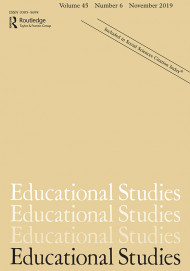In the former Czechoslovakia during the communist dictatorship (1948–1989), the right for adequate education was largely denied to people with intellectual disability (ID). However, since the first decade of the 21st century, the Czech education system has gradually shifted from the strategy of segregation to inclusion of all pupils (including those with ID) into common primary schools. Nonetheless, for the successful implementation of inclusion at the system level, it is desirable to know, how pupils without disabilities perceive a person with ID. Therefore, this study aims to analyze and describe the ideas of pupils (aged 10–15 years) about ID. Overall 2324 pupils (without disability) from 23 Czech primary schools of the so called mainstream education participated in the study. Pupils' concepts associated with ID were analyzed using mind mapping methods. It was found that an overall frequency of concepts differed in regard to gender, the school year attended, and in relation to pupils' declared experience with people with ID. Pupils' ideas may be described in terms of a medical paradigm of disability. ID was most often linked to an illness, a defect or impairment. Physiognomic or mental abnormalities of people with ID and their differences in behaviour were emphasised in particular. A fixed idea about their inabilities, shortcomings or their dependence on others was predominant in pupils questioned, some of whom also suggested that the care should be provided primarily in special institutions (such as care homes, hospitals, and special schools, etc.). The study also discusses the implications and offers recommendations for further research.
impaktovaný článek
Pivarč, Jakub. 2019. „Ideas of Czech primary school pupils about intellectual disability.“ Educational Studies 45 (6): 692 – 707. ISSN 0305-5698. Dostupné z: https://www.tandfonline.com/doi/abs/10.1080/03055698.2018.1509784.


Facebook
X
Tweets by SociologickyNewsletter